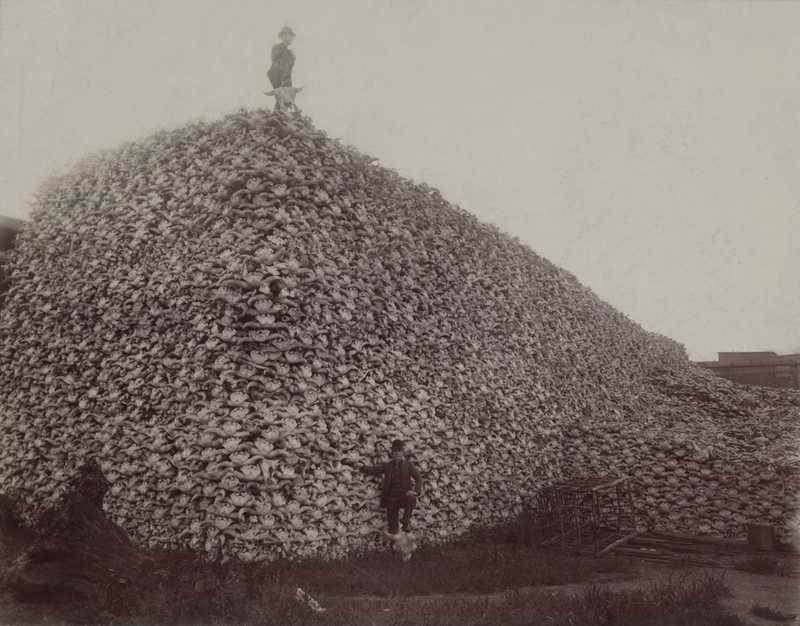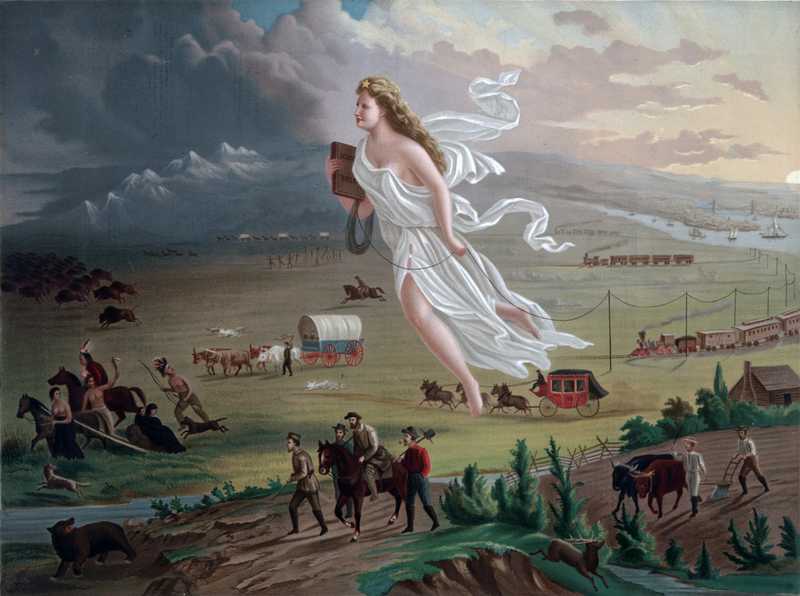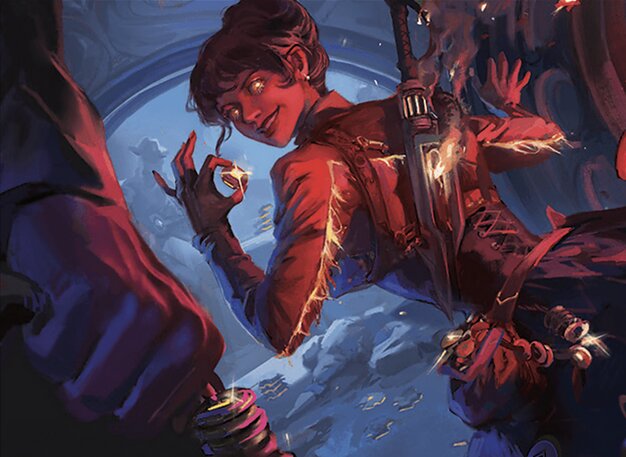The Gathering
Magic: the Colonized
“[The] myth that First Nations had similar values that the colonial culture has... conquering other peoples and accessing their land... is totally not in concert with our traditional ways and world view.”
Magic: the Gathering may be the oldest trading card game, but Cube sprung up soon afterward as Magic’s open-source ROM-hack: it piggybacks Magic’s best-in-class rules engine and professional artwork to create a highly customized game, all outside of Magic’s for-profit ecosystem.
Even though most cubes are made through curation, rather than ex nihilo invention, they are still an expression of design. In fabricating a game-within-a-ruleset, the cube’s hacker/designer selects what philosopher C. Thi Nguyen calls “a library of agencies.” When I design a Cube, my task is to decide how my players will act — will they take on the means of near-omnipotent sorcerers, crafty tacticians, or perhaps more outlandish roles like pirates or mafiosos?
With Nguyen’s framing, each new Magic set is when I get to select for my Cube dozens of new and interesting decisions, like snipping choice sentences out of the newest book in Magic’s library of agencies.1 It’s more or less my dream hobby — but Magic’s latest expansion, Outlaws of Thunder Junction, has taught me that this hobby is a responsibility, too.
Terra Nullius
Outlaws of Thunder Junction was never going to be my favorite Magic expansion. As an Okie, the Wild West setting just looks like my family reunion garishly mixed into a high-fantasy strategy card game. But, more importantly, the Wild West in pop culture is a minefield of toxicity, in particular with media’s habit of stereotypes of Native Americans. I was less than optimistic, and I wasn’t alone in my worries.
But, hey, at least Magic’s designers at Wizards of the Coast (WotC) were ahead of the curve. “Any frontier-inspired entertainment… must wrestle with the real history of Native Americans,” said a Hasbro/WotC spokesperson in a March ‘24 statement to Wargamer. This statement strikes the right pitch, but Thunder Junction’s worldbuilders still chose to depict Thunder Junction as a terra nullius: empty of all human life, until the cowboys arrived.
It sounds exactly like what you’d say if you were trying to steal someone’s land, but it was good enough for Corporate.2 With clean consciences and content consultants, WotC could print a 374-card bonanza of tropes, cameos, and puns with all the subtlety of an ACME-brand anvil:
Yeah, these cards are a soulless pastiche of Fortnite/Marvel cameo stuffed into a Stetson and called “worldbuilding” — but I do have to admit, Thunder Junction is remarkably stereotype-free concerning America’s First Peoples. WotC correctly recognized that serious examination of American imperial-colonialism is only possible with Tarkir-like levels of care and preplanning; it just can’t happen in the same card-file as Wile E. Coyote. Thunder Junction’s cheesiness is, I believe, an earnest attempt to signal that this town ain’t big enough for reimagined history and cheap cameo both.
WotC should have known it isn’t that easy to corral the Wild West.
Reenacting Colonialism
Imagine an average Magic player, buying a Thunder Junction pack after work and viewing the 15 cards inside eagerly. They, like most Magic players, don’t read the official Magic story or follow the WotC Twitter — instead, the text, image, and gameplay of the cards progressively reveals the kind of actions Thunder Junction intends its players to take. They discover Magic’s “library of agencies” sentence-by-sentence, not book-by-book.
From Forsaken Miner and Mine Raider, a player learns that the Magical settlers of Thunder Junction treat nature as an adversary. They cut into the land, blow it up, abandon their dead to it — and the land responds in kind, as shown in Redrock Sentinel and a wince-inducing reprint of Dust Bowl. And where are Thunder Junction’s bison herds; were they, like the Great Plains bison, purposefully hunted to near-extinction by an imperial army? From steam-powered railroads and dirty power generation to precious metals and privitization of tribal land, the westward expansion of American colonizers is so deeply defined by ecological abuse that WotC couldn’t even imagine a fantasy West without it.

Historically, resource extraction was not just shortsighted greed, but also a tactic of economic warfare. Scholar Deondre Smiles (Leech Lake Band of Ojibwe) states that the California Gold Rush was “a time of extreme violence to Indigenous peoples… the process of prospecting itself did widespread ecological damage to waterways and rivers… and undermined the health of Indigenous communities.” Mining byproducts poison water and soil, which harms plant and animal, which threatens Indigenous food sources and economies.

These are not irrelevant historical anecdotes; they are urgent present realities. Indigenous communities still face threats from resource extraction, from the Standing Rock Sioux resistance to the Dakota Access Pipeline to the Tularosa Basin’s advocates of “downwinders”. Nor do the harms of resource extraction discriminate between native and newcomer: through my grandparents’ farm winds a once-fertile creek, now choked with dust from the Quapaw Company’s strip mine (named, cruelly, after a displaced tribe).
As the newest book in Magic’s library of agencies, Thunder Junction is the rousing get-rich-quick fantasy of criminal cowboys. When the player re-enacts the lawless exploitation of the West through new mechanics like Commit a Crime, Spree, and Plot, they quietly reinforce the rapacious logic of American empire, regardless of WotC’s best intentions.
Good apples are spoiled by bad bushels
The few cards from Thunder Junction explicitly coded as Native American come in the form of the Atiin, a fantasy people inspired by the Navajo/Diné. Like the rest of the set, there’s nothing overtly “problematic” about this depiction — just the opposite. These characters are heroic and aspirational. Good!
But what of the gameplay decisions contained in these cards? Well, just like any other creature in Magic, Annie and Jem mostly present “combat” decisions to the player.3 As Annie’s “owner” and “controller,” will we use Annie to deal 4 “damage” to our opponent’s “life total”? Will we instead command Annie to “die” in battle to preserve our own life total? There’s nothing in Magic’s rules to prevent crueler intentions, either: we could “sacrifice” her to a vampiric conquistador, or use her ability to hasten the coming of the Dust Bowl…4
Perhaps the library’s sentences concerning the Diné-Atiin aren’t so bad, but the paragraphs and books are still violent and exploitative. The lore of the Atiin may pay lip service to peaceful exploration and independent leadership, but Magic is a library of agencies where creatures exist to fight, kill, and be summoned from the grave to fight again. Peace is not in Magic’s agential vocabulary, and therefore the Atiin must fight even when it misrepresents the Diné on whom they are based, creating the myth that began this essay: that “First Nations had similar values [to] the colonial culture.” Good apples are spoiled by bad bushels.
The Roots of Violence
“Violence is so securely founded among us — in war, in forms of land use, in various methods of ‘growth’ and ‘development’ — because it is immensely profitable,” says farmer-scholar Wendell Berry. To Berry’s list, I’d add “games”. Magic is a violent game from its very premise: you’re a wizard who can’t settle a dispute like an adult, so you must overpower and kill your opponent. Thunder Junction is not an outlier to Magic’s philosophy, but rather the apotheosis of the bloodless 13-and-up violence at Magic’s core. It should have been no surprise to find shadows of colonialism cast over Thunder Junction, when the shadow of violence extends over of Magic, and indeed over all of WotC.
So, despite Thunder Junction’s failings, it won’t do any good to boycott it, or petition WotC, or brigade Twitter. There’s no use banning a book of agencies when the library is full of the same author. Neither do I wish to flagellate myself for enjoying Magic, when the game has brought me so much beauty and growth and friendship. But I see now that these roses grew up despite a bed of thorns — I have simply been lucky enough to avoid thorn-pricks until now.
Cube is the project of transmuting sometimes-colonial, always-violent cards into an activity that makes its players better strategists, better sports, and better community members. Cube is the creative re-purposing of sentences in Magic’s library of agencies to create poems. Cube is the cultivation of roses from a garden of thorns.
- In most sanctioned Magic formats, a designer doesn’t have this kind of power. An event buy-in of $5-50 where prizes are shared among the top winners recreates a miniature capitalist meta-game, complete with a façade of meritocracy, since the “best” Magic players are usually those who’ve had years of disposable income and time to fund their improvement. It’s Nguyen’s library of agencies, but the books are all Jack Welch: From the Gut.↩
- As recently as 2021, this idea has been expressed by US political elites: “We birthed a nation from nothing… I mean, yes we have Native Americans, but candidly there isn’t much Native American culture in American culture,” says former Senator Rick Santorum. Bold claim for a guy whose major pop-culture contribution is being the contrived namesake of a sex act. (The jokes write themselves sometimes.)↩
- In a 2022 United Nations forum, General Assembly President Abdulla Shahid of the Maldives praised an indigenous “relationship with nature [grounded in] kinship, centered around reciprocity, and infused with reverence.” This attitude is pretty incompatible with Magic’s combat engine.↩
- Don’t blame me — all these words are straight from Magic’s current official rules. This is what is known as “ludonarrative dissonance”.↩
